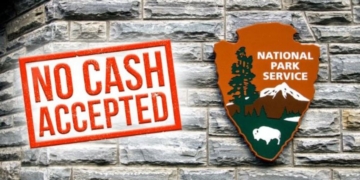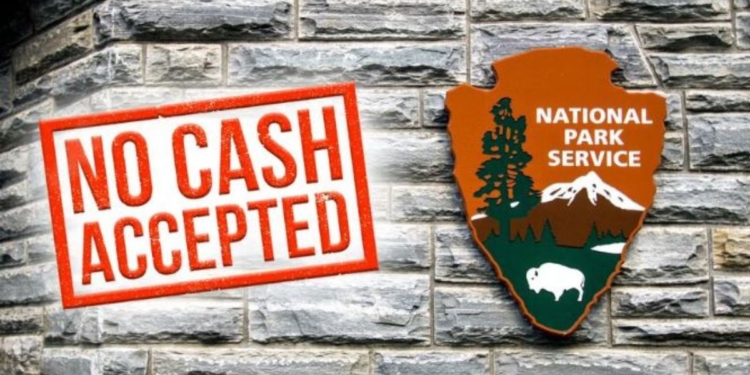Is cash not king anymore?
For the American federal government, the answer appears to be no, much to the chagrin of Elizabeth Dasburg.
As reported by USA Today, many of the sites handled by the National Park System have begun to no longer accept cash payments for entry fees. This was the case when Dasburg tried to visit Georgia’s Fort Pulaski National Monument
While many may simply accept defeat and either pay with a card or turn around and leave, the Georgia resident has far too much tenacity for that.
Instead she, alongside two other plaintiffs, are suing the federal government, specifically the National Park Service and Department of the Interior, for forcing non-cash payments for entry.
The suit claims that the park system’s refusal to accept legal tender at 29 different locations violates federal law.
Moreover, it further claims that since it can cost money for citizens to get bank accounts and cards, it’s essentially charging extra money for people to enter.
The suit clarifies that it is not asking the parks system to no longer accept cards or forms of digital payments, just to simply restore visitors’ ability to pay with cash.
Justin Unger, National Park Service associate director for Business Services, told USA Today they had made the change as “The number of formal banks with relationships with the Treasury Department, where we could actually take cash, has really dried up, especially in more rural or remote areas,” but many believe it may not be the case.
As the ACLU notes, the push toward a cashless society comes with many major drawbacks for consumers
Removing the ability to use cash removes any level of privacy in transactions, putting everything within the sightline of the federal government.
🚨 Woman Sues National Park Service After Being Told She Couldn’t Use Cash
“By forcing people to use credit cards … under the guise of convenience, the @NatlParkService becomes a player in the surveillance state…” @KimMRosenberg
— Children’s Health Defense (@ChildrensHD) March 8, 2024
The $5 you were given to go buy ice for your family? Now that’s noted income that the Internal Revenue Service is aware of.
The $20 a friend lent you until you could pay for gas? Income that can be taxed now.
While of course there’s no guarantee that every little transaction will be monitored and then potentially taxed, removing a cashless society creates the opportunity for it to happen.
It can also lead to unjust actions against citizens such as what happened in Canada when Canadian Prime Minister Justin Trudeau froze the bank accounts of truckers protesting a mandate, according to The New York Times.
In a cashless society, these protestors trying to defend their rights would suddenly have absolutely no ability to purchase anything.
A society that doesn’t allow for legal tender by no means guarantees that such authoritarian practices will take place but it does make it easier for them to occur.
Perhaps the first few leaders in a cashless society won’t abuse the power they possess but what about the ones after them?
A cashless society is handing the government a gun and asking them not to fire it.
This article appeared originally on The Western Journal.


























 Continue with Google
Continue with Google